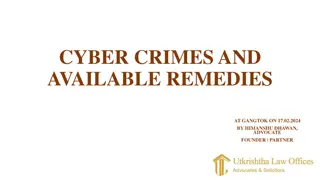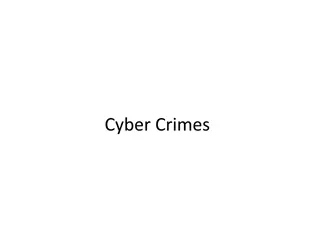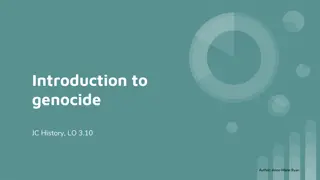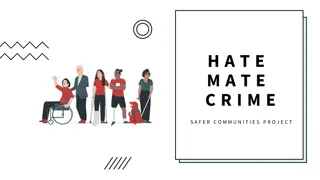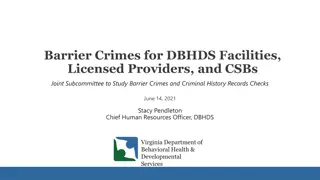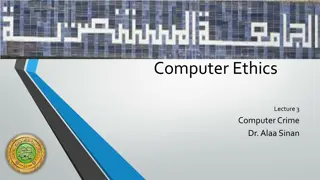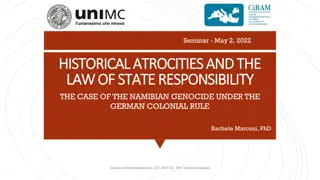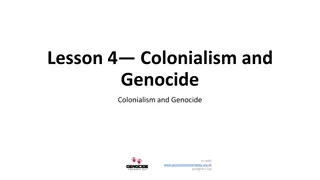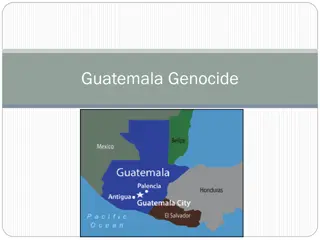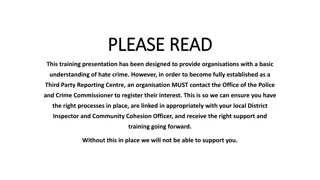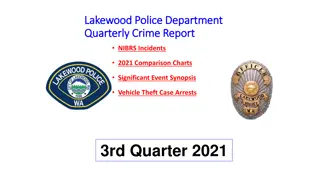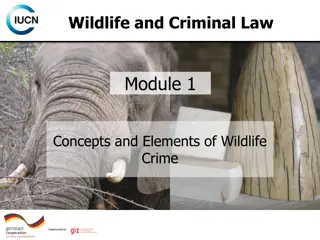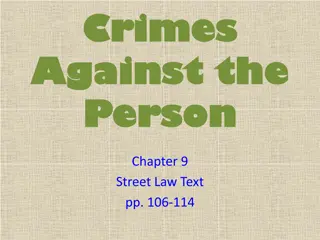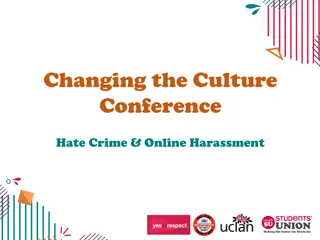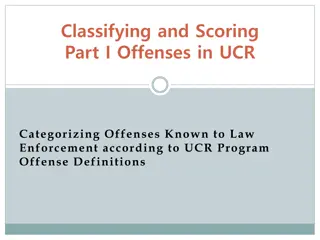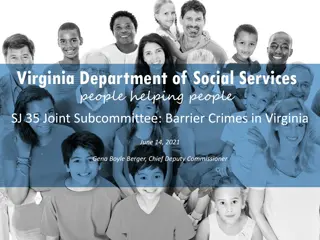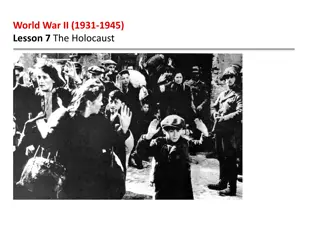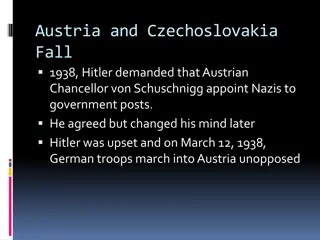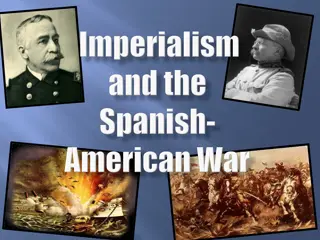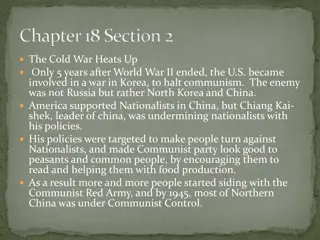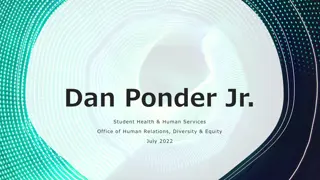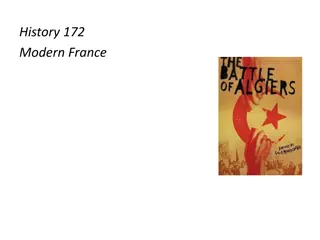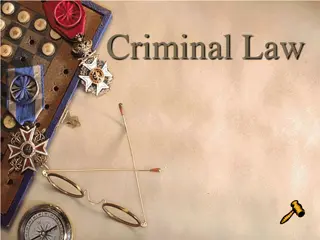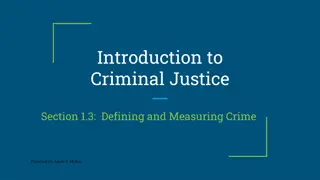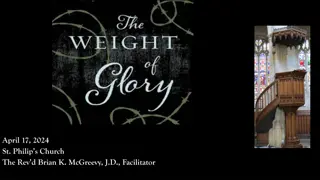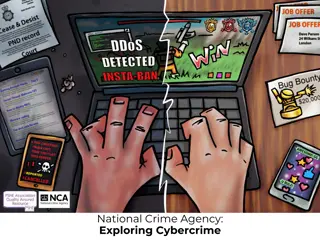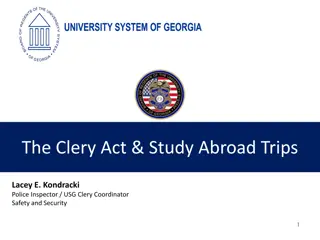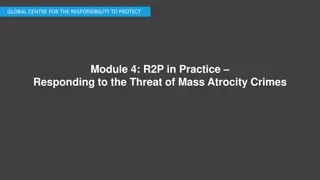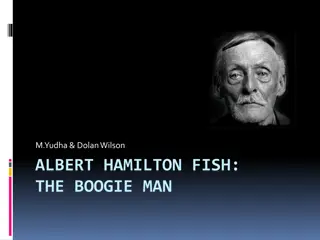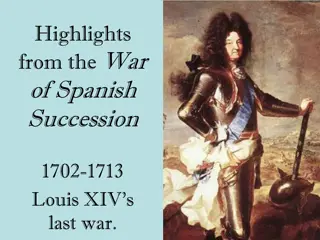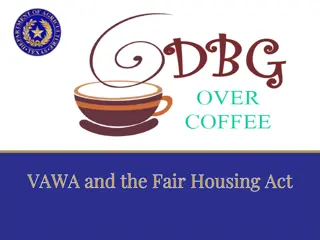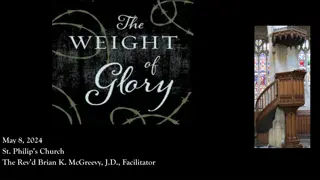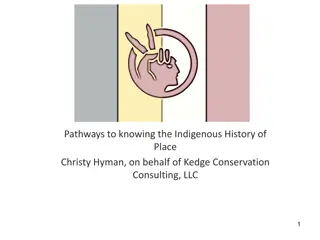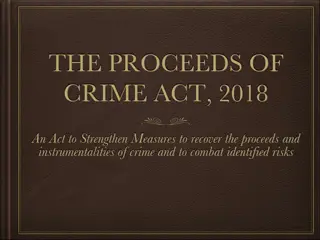Insights into Genocide and War Crimes in the Former Yugoslavia
Explore the harrowing events surrounding the genocide in Srebrenica, as well as the ICC statute defining genocide. Witness the testimonies of individuals like Drazen Erdemovic and Dragan Obrenovic, shedding light on the atrocities committed during the Yugoslav Wars. Delve into the plea of guilty, remorse, and quest for understanding that mark these tragic chapters in history.
Download Presentation

Please find below an Image/Link to download the presentation.
The content on the website is provided AS IS for your information and personal use only. It may not be sold, licensed, or shared on other websites without obtaining consent from the author. Download presentation by click this link. If you encounter any issues during the download, it is possible that the publisher has removed the file from their server.
E N D
Presentation Transcript
Gresham 6 May 2015 Srebrenica II Geoffrey Nice - Nevenka Tromp
GENOCIDE - ICC STATUTE Article 6 Genocide For the purpose of this Statute, genocide means any of the following acts committed with intent to destroy, in whole or in part, a national, ethnical, racial or religious group, as such: (a) Killing members of the group; (b) Causing serious bodily or mental harm to members of the group; (c) Deliberately inflicting on the group conditions of life calculated to bring about its physical destruction in whole or in part; (d) Imposing measures intended to prevent births within the group; (e) Forcibly transferring children of the group to another group.
Drazen Erdemovic, Plea of Guilty I have lost many very good friends of all nationalities only because of that war, and I am convinced that all of them, all of my friends, were not in favour of a war. I am convinced of that. But simply they had no other choice. This war came and there was no way out. The same happened to me.
Drazen Erdemovic, plea of guilty I admitted to what I did to this journalist and I told her at that time that I wanted to go to the International Tribunal, that I wanted to help the International Tribunal understand what happened to ordinary people like myself in Yugoslavia. Because of everything that happened I feel terribly sorry, but I could not do anything. When I could do something, I did it. Thank you. I have nothing else to say
Dragan Obrenovic, plea of guilty There was no choice. You could be either a soldier or a traitor. At the beginning of the war, it seemed as if the war and all it brought with it was impossible, that this wasn't really happening to us, and that everything would be resolved within a few days, and that finally our generation would have a chance. We didn't even notice how we were drawn into the vortex of inter-ethnic hatred and how neighbours were no longer able to live beside each other, how death moved into the vicinity, and we didn't even notice that we had got used to it. Death became our reality.
Dragan Obrenovic, plea of guilty In Bosnia, having coffee with your neighbour is a ritual, and this is what we trampled on and forgot. We lost ourselves in hatred and brutality. And in this vortex of terrible misfortune and horror, the horror of Srebrenica happened. I am to blame for everything I did at that time. I am trying to erase all this and to be what I was not at that time. I am also to blame for what I did not do, for not trying to protect those prisoners. Regardless of the temporary nature of my then- post. I ask myself again and again, what could I have done that I didn't do? Thousands of innocent victims perished. Graves remain behind, refugees, general destruction and misfortune and misery. I bear part of the responsibility for this.
Dragan Obrenovic, plea of guilty What has won the victory is misfortune and unhappiness, as a consequence of blind hatred. The spirit of this unhappiness still hovers over our Bosnian hills, which have suffered so much, and it will take years to wipe out the traces of this horrible war and to have smoke rise again from people's chimneys, from the hearths, and maybe decades will have to pass before the wounds in people's souls are healed. If my confession, my testimony, and my remorse, if my attempt to face myself contributes to the quicker healing of these wounds, I will have done my duty of a soldier, a fighter, a human being, and a father.
Momir Nikolic Plea of Guilty I sincerely wish before this Chamber and before the public, especially the Bosniak public, to express my deep and sincere remorse and regret because of the crime that occurred and to apologise to the victims, their families, and the Bosniak people for my participation in this crime..
Momir Nikolic Plea of Guilty I am aware that I cannot bring back the dead, that I cannot mitigate the pain of the families by my confession, but I wish to contribute to the full truth being established about Srebrenica and the victims there and for the government organs of Republika Srpska, and all the individuals who took part in these crimes should follow in my footsteps and admit to their participation and their guilt, that they should give themselves in and be held responsible for what they have done
Momir Nikolic Plea of Guilty By my guilty plea, I wanted to help the Tribunal and the Prosecutors to arrive at the complete and full truth and the victims, their brothers, mothers, and sisters should I wanted to avoid their being subjected to additional suffering and not to remind them of this terrible tragedy. Your Honours, I feel that my confession is an important step toward the rebuilding of confidence and co- existence in Bosnia and Herzegovina, and after my guilty plea and sentencing, after I have served my sentence, it is my wish to go back to my native town of Bratunac and to live there with all other peoples in peace and harmony, such as prevailed before the outbreak of the war
London Treaty Map showing land offered to Serbia in 1905 by the Allied Forces
Moljevis Map of Greater Serbia. From Izvori Velikosrpske Agresije,
Greater Serbia and Clash of the State Projects 1991-1995
MILOOVI ON SREBRENICA I heard about Srebrenica from Carl Bildt. And Karadzic, whom I rang up on the phone immediately afterwards to asked what had happened, he swore he knew nothing about it. On the contrary, he said he had ordered that the western part be protected, which was under jeopardy, and that he knew nothing about the whole thing this total annihilation.
Dr Ton Zwaan as summarised by the Milosevic Trial Chamber importance of ideology; propaganda that plays a major role in processes leading to the commission of genocide, propaganda that involving various types of radical nationalism, which dehumanise the targeted group,
Dr Ton Zwaan as summarised by the Milosevic Trial Chamber use of collective historical memory (where applicable) in an attempt to create a them and us culture. nationalist ideologies are later used to legitimise, rationalise, and justify the genocidal process. individual motives for participating in the acts may be varied ideologies give an overall sense of direction to what should be done and impart a sense of purpose and intent to individual perpetrators.
Dr Ton Zwaan as summarised by the Milosevic Trial Chamber genocide is a crime of state, i.e., the overall perception, attitude, behaviour, and decision of the central political leadership are decisive factors in the emergence of genocidal crimes. genocidal crimes never develop from the bottom up ; they are top down affairs. Such crimes occur with the knowledge, approval, and involvement of the state authorities .
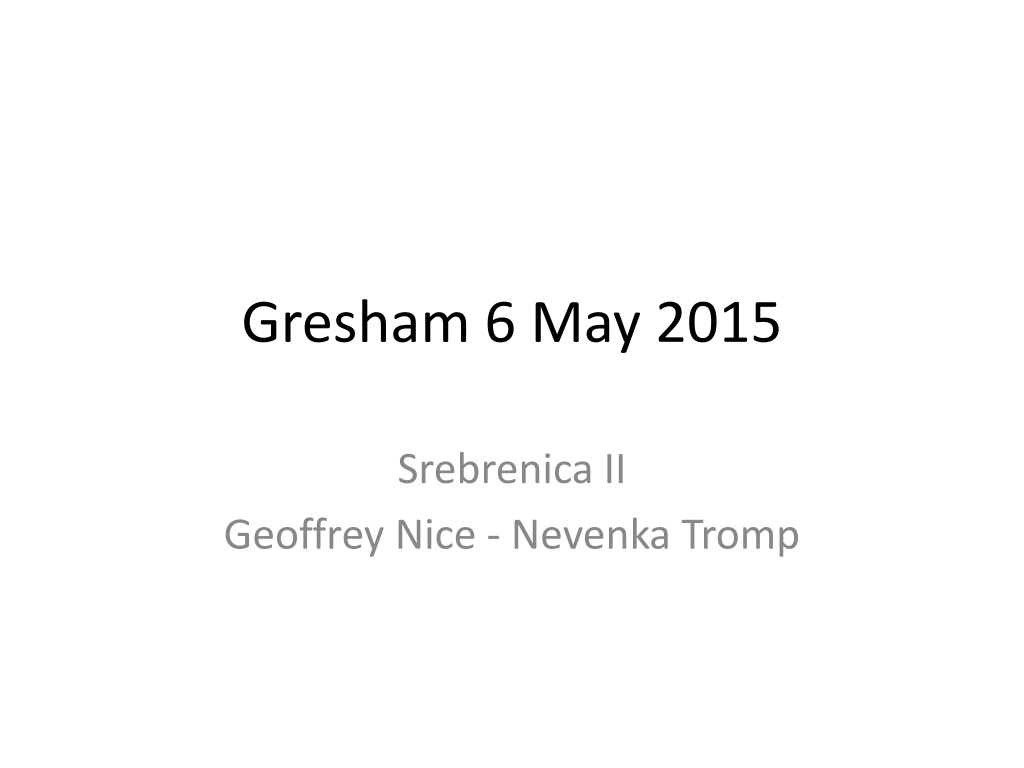

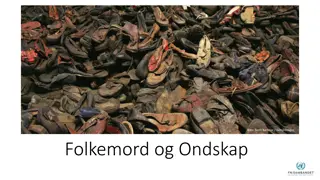
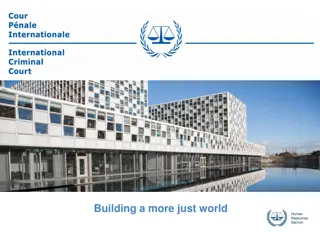
![Prevention and Combating of Hate Crimes and Hate Speech Bill [B.9B.2018]](/thumb/60513/prevention-and-combating-of-hate-crimes-and-hate-speech-bill-b-9b-2018.jpg)
